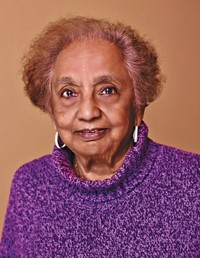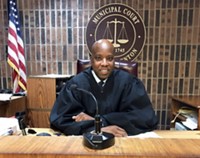Advertisement
Grab your lab coat. Let's get started
Welcome!
Welcome!
Create an account below to get 6 C&EN articles per month, receive newsletters and more - all free.
It seems this is your first time logging in online. Please enter the following information to continue.
As an ACS member you automatically get access to this site. All we need is few more details to create your reading experience.
Not you? Sign in with a different account.
Not you? Sign in with a different account.
ERROR 1
ERROR 1
ERROR 2
ERROR 2
ERROR 2
ERROR 2
ERROR 2
Password and Confirm password must match.
If you have an ACS member number, please enter it here so we can link this account to your membership. (optional)
ERROR 2
ACS values your privacy. By submitting your information, you are gaining access to C&EN and subscribing to our weekly newsletter. We use the information you provide to make your reading experience better, and we will never sell your data to third party members.
Careers
Career Ladder
Career Ladder: Kerisha Bowen
This litigator and patent prosecutor uses her background in chemistry to help clients get access to information they otherwise could not
by Jonathan Forney
March 4, 2023
| A version of this story appeared in
Volume 101, Issue 8
1998–2011
Dreams of teaching

Kerisha Bowen was born in Trinidad and moved to Toronto before her family finally settled in Pennsylvania. A good student, Bowen wanted to be a professor. She majored in chemistry at Lincoln University, then earned an MS and PhD in chemistry at Temple University as part of a program to help students from underrepresented groups enter academic careers. Her first job, as an assistant professor of chemistry at Penn State Brandywine, ended when a fellow professor casually used a racial slur in conversation with Bowen. The university launched an investigation, but ultimately sided with the professor. “I felt like the academic atmosphere wasn’t conscious about how diversity and inclusion mattered,” she says. Bowen eventually left for Rowan University, which she liked more. But in the end, she decided that academia wasn’t for her.
2012–16
Pivot to patents
After considering her options, Bowen decided to enroll in a master’s program in patent law at the University of Notre Dame. She didn’t know much about the field other than what she had heard from a graduate school classmate who had gone into patent law. She noticed during her studies that, like her, many of her classmates had not planned to enter the field. “A lot of people that got into IP [intellectual property] law—it wasn’t what they wanted to do,” Bowen said. “I wanted to teach, and it didn’t work out for me.” She was surprised by how science-based the field is: people can take the patent bar without attending law school; they just need a bachelor’s in science to take the exam. After finishing her master’s program, Bowen joined the intellectual property and technology group at Dentons as a patent agent—and she still works there.

2016–21
Becoming a lawyer
After gaining experience as a patent agent, Bowen enrolled in law school at the George Washington University. “A lot of people start as a patent agent,” she says. Some firms will even pay for employees’ law degree studies. Going to law school enabled Bowen to handle much more than patent law in the chemical field. After obtaining her law degree, Bowen moved up from patent agent to law clerk at Dentons and, most recently, to associate in 2021.
2021–Present
Litigator and mentor
These days, Bowen is more focused on the litigation side of patents, representing companies accused of infringing on chemical patents or trade secrets. In one recent case, she assisted her client in getting a Digital Millennium Copyright Act ruling that allowed it the right to repair medical equipment. That relieved the company of the financial burden of outsourcing repairs. In addition to her legal work, Bowen joins some of her Black colleagues in giving presentations to schools and other organizations about improving diversity in science fields—reaching out to Black people in particular. “I try to do what I can to support people that are coming up,” she says.





Join the conversation
Contact the reporter
Submit a Letter to the Editor for publication
Engage with us on Twitter